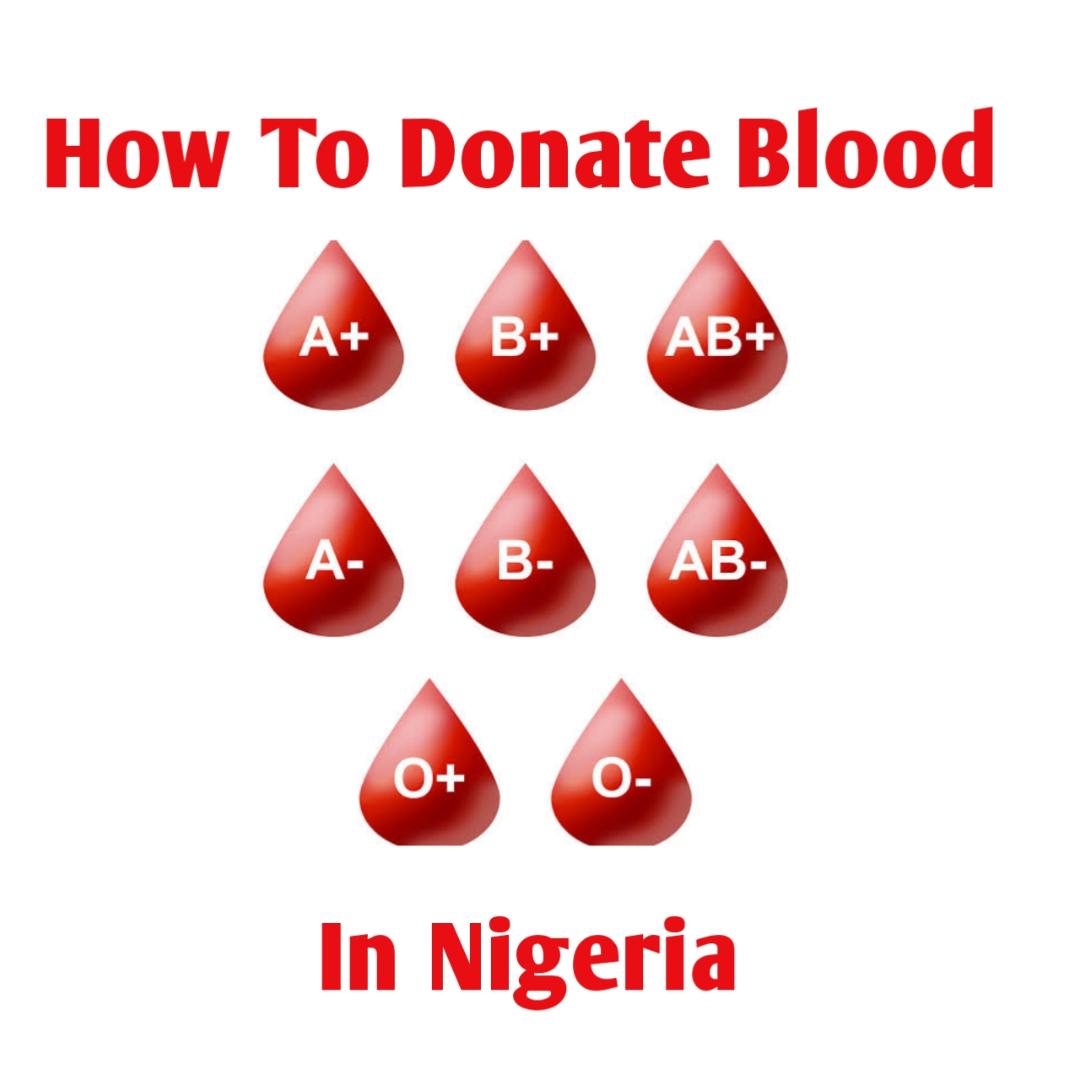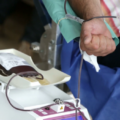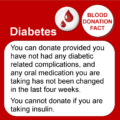A blood donation occurs when a person voluntarily has blood drawn and used for transfusions and/or made into biopharmaceutical medications by a process called fractionation (separation of whole-blood components). Blood donors are grouped into voluntary donors, replacement donors, and paid donors. The safest of these is the voluntary blood donor. Blood banking is highly regulated to ensure both donor and recipient safety. The goal of blood banking is to provide adequate and safe blood to recipients at no risk to donors.
The Nigerian government encourages men to donate blood once every four months and women should do so every three months to meet Nigeria’s estimated blood needs which stand at 1.8 million units of blood per annum.
Available statistics show that only 10 percent of Nigerians donate blood freely while 60 percent do it for money while the remaining 30 percent of blood donors only gave it to relatives in need.
How To Donate Blood In Nigeria
In Nigeria, blood donation is crucial for the treatment of various medical conditions such as sickle cell anemia, malaria, and other diseases that require blood transfusions. In this guide, we will provide a step-by-step guide on how to donate blood in Nigeria, including eligibility requirements, preparation, and the donation process.
Eligibility Requirements
To be eligible to donate blood in Nigeria, donors must meet certain criteria. These include:
- Age: Donors must be at least 18 years old and not older than 65 years old.
- Weight: Donors must weigh at least 50kg.
- Health: Donors must be in good health and not have any medical conditions such as HIV/AIDS, hepatitis, or malaria.
- Medications: Donors must not be taking certain medications, such as antibiotics or blood thinners.
- Lifestyle: Donors must not engage in high-risk behaviors such as drug use or unprotected sex.
Preparation
Before donating blood, donors should take certain precautions to ensure that they are healthy and ready to donate. These include:
- Hydrate: Drink plenty of fluids in the 24 hours leading up to the donation to ensure that the body is well-hydrated.
- Eat a healthy meal: Eat a nutritious meal that includes iron-rich foods such as leafy green vegetables, red meat, and beans.
- Get enough sleep: Ensure that you have had enough sleep and are well-rested before the donation.
- Dress appropriately: Wear loose, comfortable clothing that allows for easy access to the arm.
- Bring identification: Bring a form of identification such as a driver’s license or passport.
The Donation Process
The blood donation process typically takes between 30 minutes to an hour, and involves the following steps:
- Registration: Donors will be asked to provide identification and fill out a registration form.
- Screening: Donors will undergo a medical screening to determine eligibility. This includes a review of medical history, a physical examination, and a blood test to check for diseases.
- Donation: If the donor is eligible, they will proceed to the donation area. The arm will be cleaned with antiseptic, and a sterile needle will be inserted into a vein in the arm. Blood will be collected in a bag or container, and the process typically takes around 10-15 minutes.
- Rest and refreshment: After the donation, donors will be asked to rest for a short period of time and given refreshments such as juice and snacks.
- Post-donation care: Donors will be given instructions on how to care for themselves after the donation, such as avoiding heavy lifting and staying hydrated.
Where to Donate Blood
In Nigeria, blood donation can be done at various locations, including blood banks, hospitals, and blood donation centers. Some of the organizations that accept blood donations in Nigeria include:
- National Blood Transfusion Service: This is a government organization that manages the blood supply in Nigeria. They have donation centers in various locations across the country.
- Nigerian Red Cross Society: This is a humanitarian organization that provides disaster relief, health services, and blood transfusions. They accept blood donations at their branches throughout Nigeria.
- Hospitals: Many hospitals in Nigeria have blood donation centers where donors can donate blood for use in medical procedures.
Health Benefits Of Donating Blood
Blood donation not only makes the receiver’s life good but also helps the donor to maintain good health.
Here are some of the main health benefits of donating blood:
Reduces risk of heart disease: Donating blood can help to reduce the risk of heart disease by lowering blood pressure and reducing excess iron in the blood. High levels of iron can cause damage to blood vessels and increase the risk of heart disease, so donating blood can help to maintain healthy iron levels.
Stimulates blood cell production: Donating blood can stimulate the production of new blood cells, including red blood cells, which are responsible for carrying oxygen throughout the body. This can help to improve overall health and vitality.
Promotes weight loss: Donating blood can help to burn calories and promote weight loss. A single blood donation can burn up to 650 calories, which is equivalent to a moderate workout.
Helps to detect health problems: Before donating blood, donors are screened for various health conditions such as anemia, high blood pressure, and infectious diseases. This can help to detect health problems early and provide an opportunity for treatment.
Provides a sense of purpose: Donating blood can provide a sense of purpose and fulfillment by helping to save lives and improve the health of others. It can also boost self-esteem and reduce stress.
Donating blood is a selfless act that can save lives and improve the health of others. In Nigeria, blood donation is crucial for the treatment of various medical conditions and diseases. By following the eligibility requirements, preparing appropriately, and undergoing the donation process, donors can make a positive impact on the health of others. If you are interested
Overall, donating blood has several health benefits for the donor, as well as the potential to save lives and improve the health of others. If you are interested in donating blood, be sure to check with your local blood bank or donation center to find out the eligibility requirements and schedule an appointment. SEE: Best Blood Tonic For Weight Gain In Nigeria





